Hey there! If you've recently undergone surgery, you might be feeling a bit overwhelmed with all the post-operative instructions you need to follow. Don't worry, thoughâthis is completely normal, and following these guidelines can make all the difference in your recovery. We've put together a comprehensive letter template that breaks down essential aftercare tips to ensure a smooth healing process. So, grab a cup of tea and let's dive into the detailsâyour recovery journey starts here!
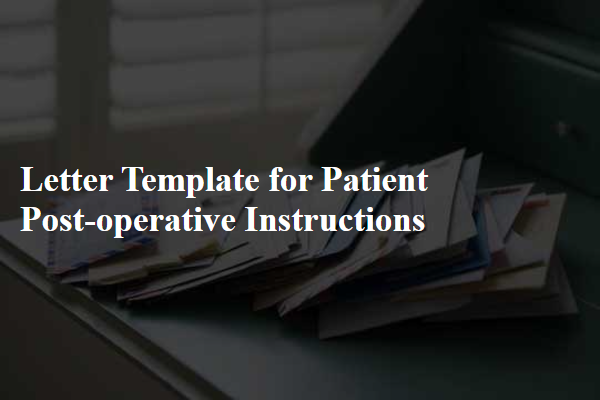
Contact Information for Medical Queries
Post-operative care is essential for recovery following surgical procedures. Patients should maintain open communication with healthcare providers for any concerns post-surgery. Contact information, including hospital phone numbers such as (555) 123-4567, office hours from 9 AM to 5 PM, and specific departments (like the Surgical Recovery Unit) should be clearly outlined for easy reference. It is important for patients to note emergency contact lines available 24/7, ensuring immediate assistance if complications arise. Following discharge, follow-up appointments within the stipulated two weeks are crucial for monitoring healing progress.
Medication and Dosage Guidelines
After surgery, following medication and dosage guidelines is crucial for optimal recovery. Medications prescribed, such as analgesics (pain relievers like Oxycodone or Ibuprofen), should be taken as directed, typically every 4 to 6 hours, depending on severity of pain. Dosage recommendations often specify maximum limits, for example, not exceeding 3000 mg of Acetaminophen in a 24-hour period to prevent liver damage. Antibiotics may also be prescribed to prevent infection, commonly taken for 7 to 10 days post-operation, with specific instructions to complete the entire course to ensure effectiveness. It is important to maintain adequate hydration (at least 8 glasses of water daily) while on medications, as this can aid in recovery and help mitigate side effects such as constipation. Always consult the healthcare provider for clarification on any medication concerns or potential interactions with other prescribed medications.
Activity and Physical Restrictions
Post-operative instructions emphasize activity and physical restrictions essential for recovery following a surgical procedure. Patients should adhere to guidelines indicating limited weight-bearing, such as avoiding lifting objects over 10 pounds for a specified duration, typically two to six weeks depending on the surgery type. Mobility recommendations may include using assistive devices like crutches or walkers to facilitate safe movement during the healing process. Physical activities must be approached gradually, with a focus on gentle exercises approved by a healthcare provider, avoiding high-impact sports to prevent strain on the surgical site. Regular follow-ups with the surgical team, scheduled approximately one to two weeks post-operation, are crucial to monitor healing progress and adjust restrictions as necessary.
Signs and Symptoms of Complications
Post-operative care is critical for ensuring a smooth recovery process for patients following surgeries, such as laparoscopic cholecystectomy, a procedure commonly performed for gallbladder removal. Key signs and symptoms indicating potential complications include severe abdominal pain, which may signify internal bleeding, or persistent fever over 100.4 degrees Fahrenheit, possibly indicating infection. Additionally, unusual drainage from the incision sites must be monitored; thick greenish or foul-smelling drainage could suggest an abscess formation, necessitating immediate medical attention. Swelling in the legs or difficulty breathing may also indicate deep vein thrombosis or pulmonary embolism, both requiring urgent evaluation. Patients should be educated on these warning signs, ensuring they recognize when to seek assistance from healthcare professionals, such as visiting their local emergency room for immediate assessment.
Follow-Up Appointment Details
Post-operative instructions are crucial for ensuring proper recovery after surgery. Patients must adhere to guidelines provided by healthcare professionals. Follow-up appointments are essential for monitoring healing progress and identifying potential complications. Typically scheduled within 1 to 3 weeks post-surgery, these appointments allow surgeons or primary care physicians to assess surgical sites for infection, inflammatory responses, and overall recovery. Patients should note the specific date, time, and location of the follow-up appointment, and bring along any necessary documents or questions. Contact numbers for the medical office should be recorded for inquiries or concerns before the scheduled visit.
Letter Template For Patient Post-Operative Instructions Samples
Letter template of discharge instructions following surgical procedures.
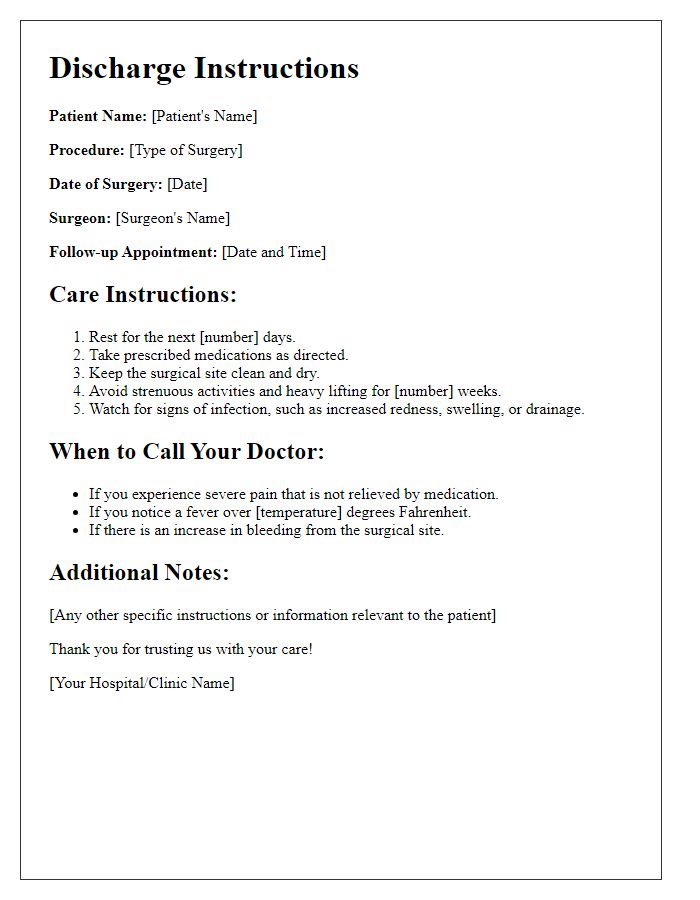
Letter template of essential post-operative advice for surgical patients.
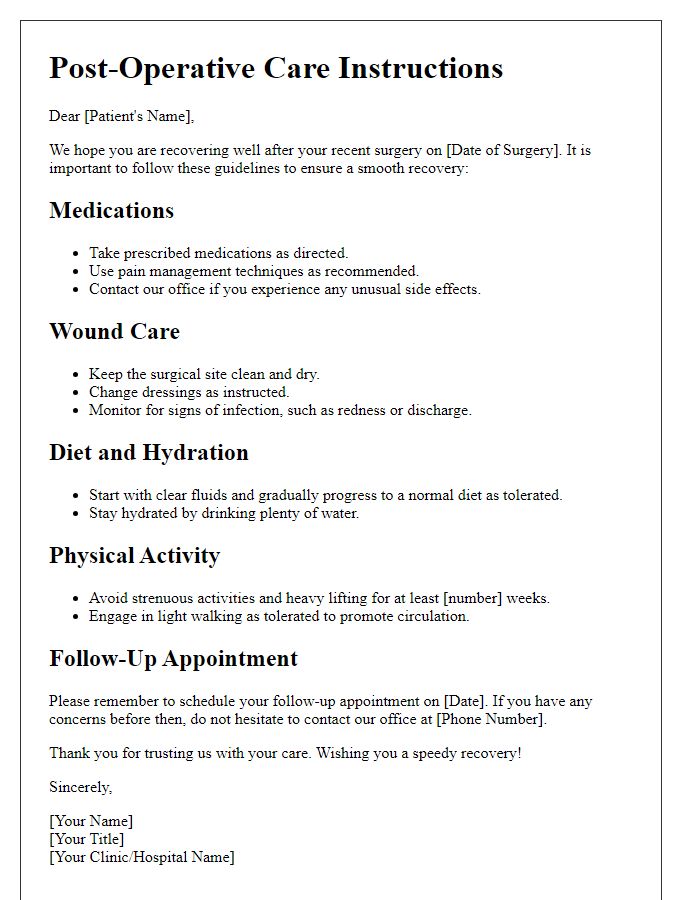
Letter template of patient instructions for managing post-operative symptoms.
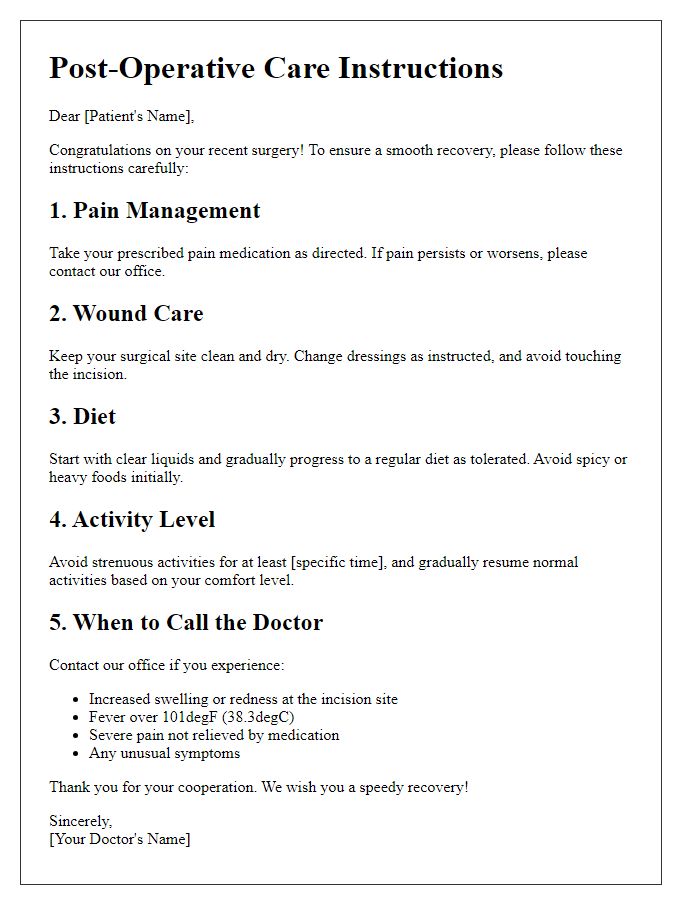
Letter template of detailed post-surgery care instructions for individuals.
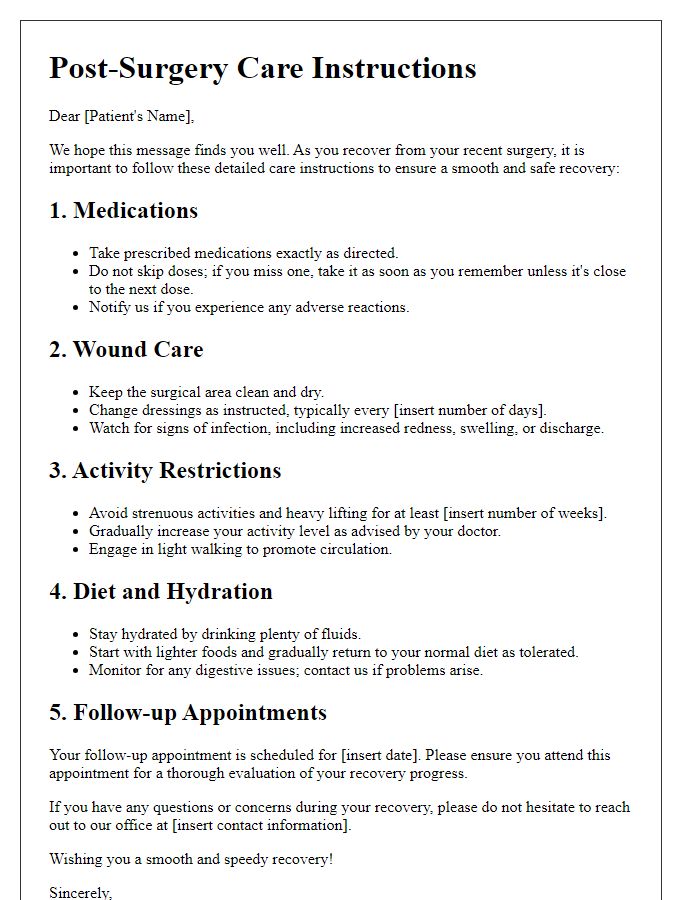

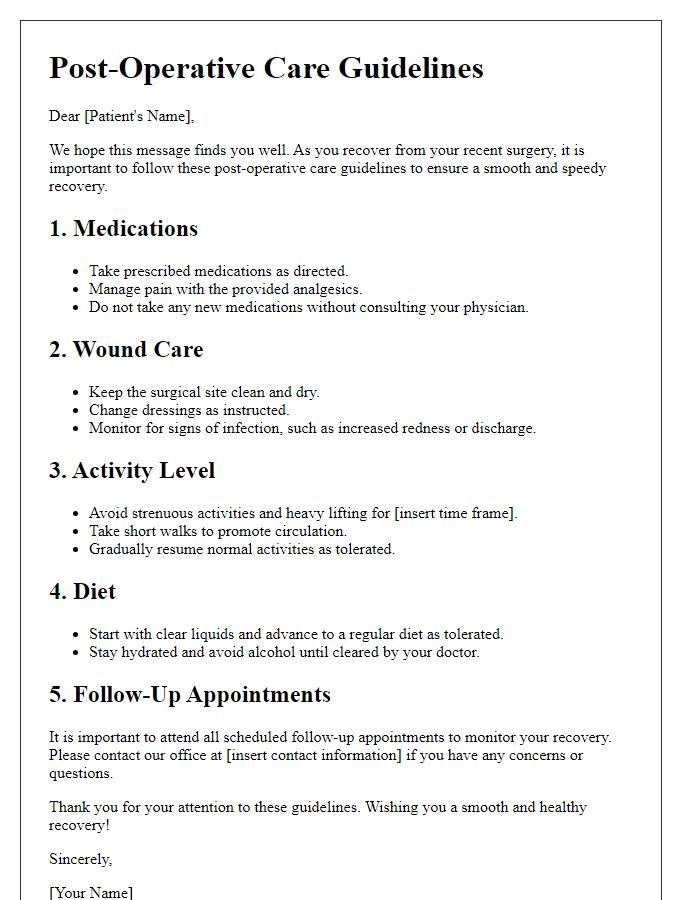
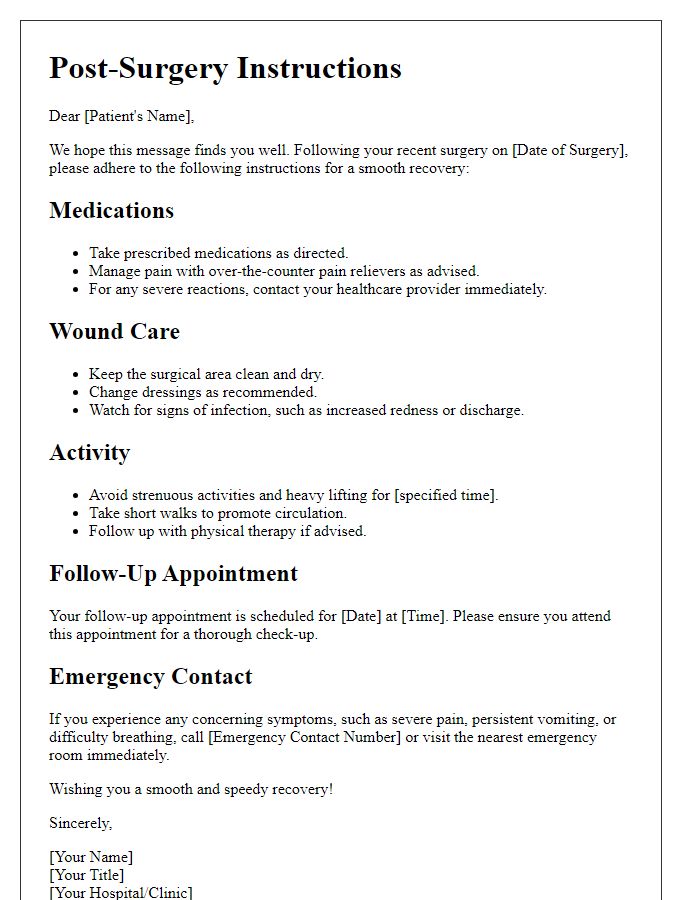
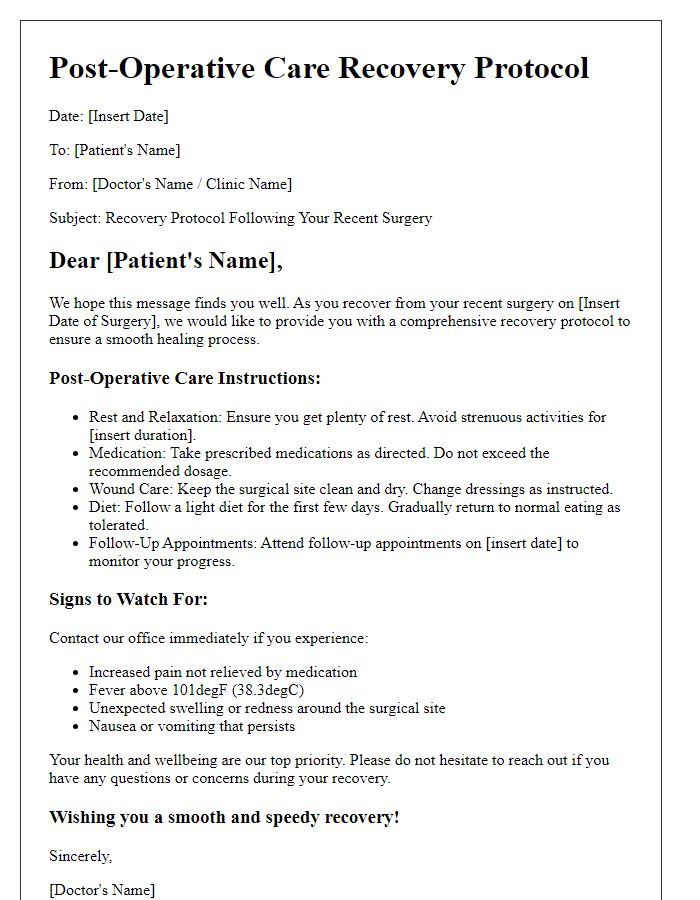
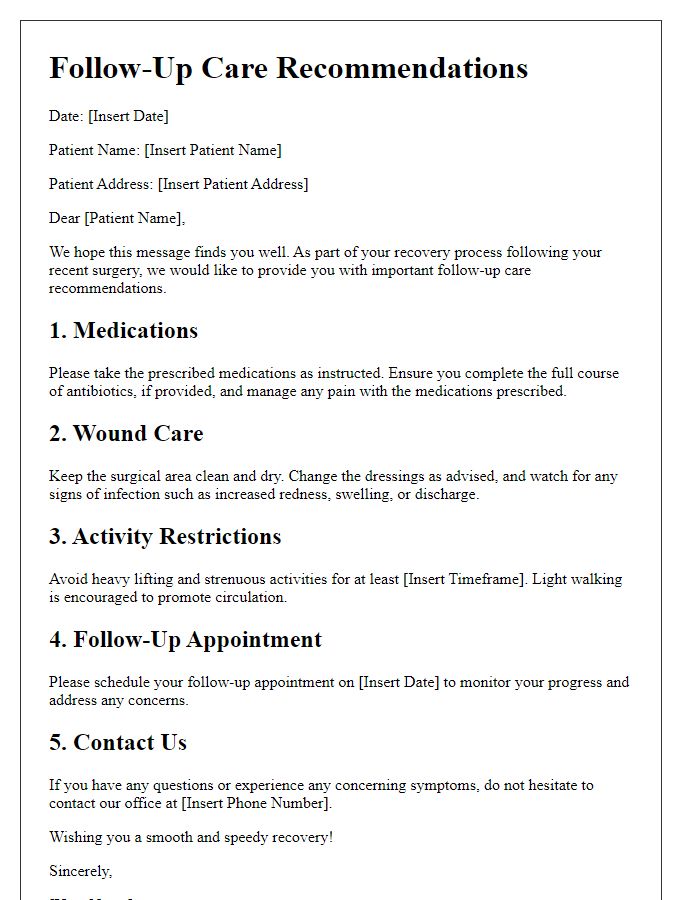
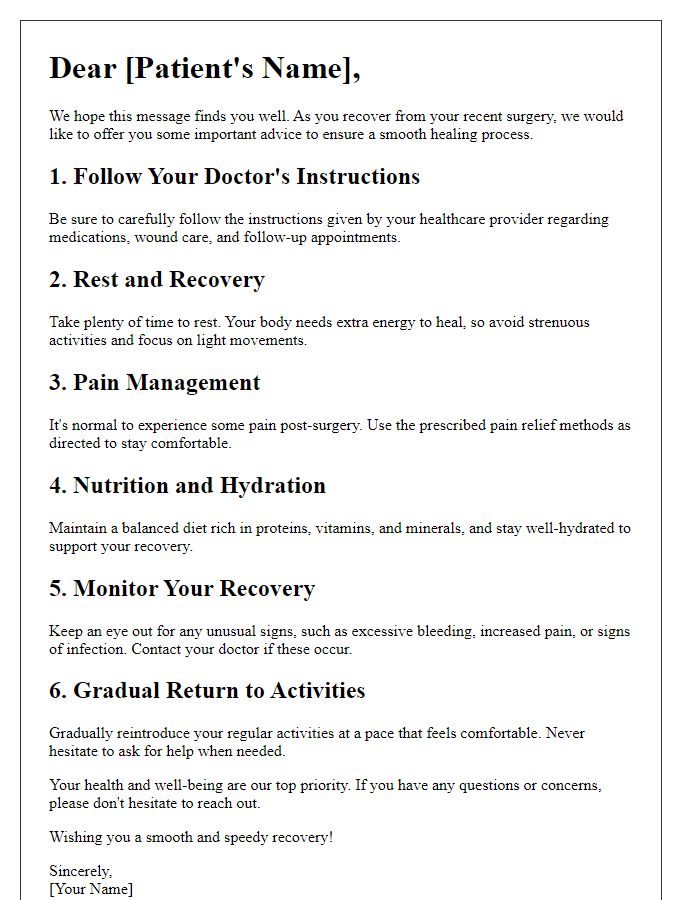
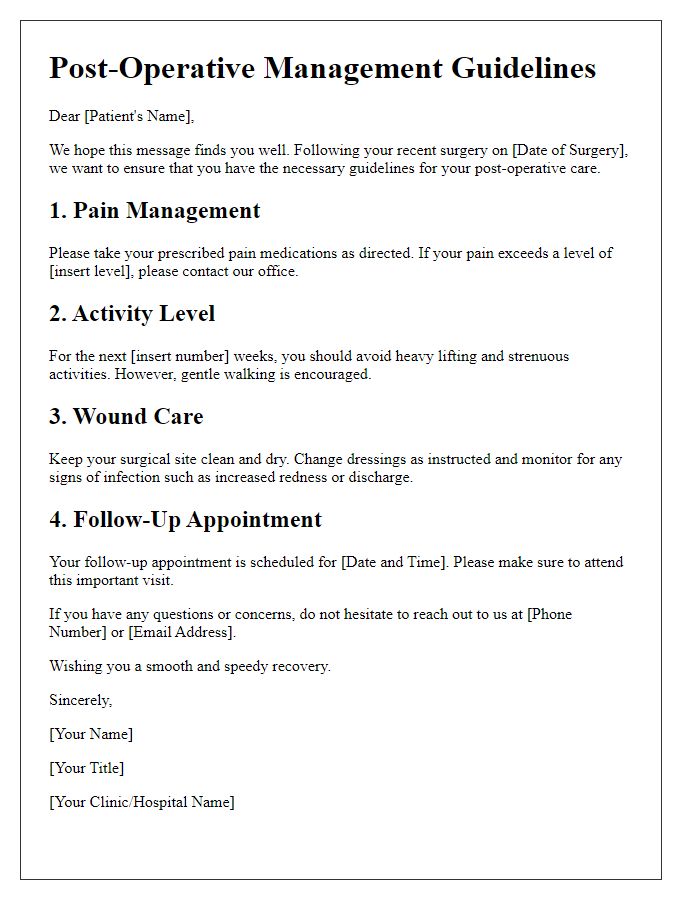


Comments